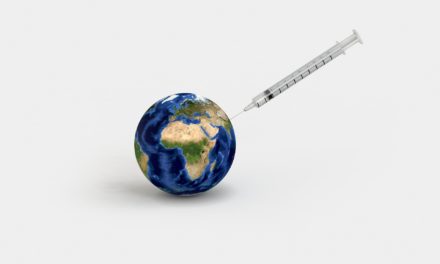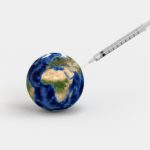‘So what did you do this morning darling?’ ‘Oh, nothing much; Mowed the lawn and maybe helped fix Covid-19.’ Just what the world doesn’t need; another half-baked, semi-scientific blog on Coronavirus from someone who knows a little, but probably not enough. Thank you all (three of you…probably) for listening. If a little knowledge is a dangerous thing I might be just about to do the most dangerous thing I’ve ever attempted. And, while having a degree in Biochemistry from Liverpool Polytechnic in 1986 might make me more knowledgeable than some, I’m not pretending that it demonstrates anything other than a long-held fascination with how all that funky stuff inside of us works.
But here’s the thing also, in every Hollywood disaster movie there’s an ordinary munchkin who stumbles upon the missing link that makes the alien’s head explode. And I’m still wondering if I just came across the Covid equivalent of ‘Indian Love Call’ by Slim Whitman in the film Mars Attacks.
Like many people I’ve spent much of the last six months
- Reading lots about Covid-19
- Being convinced I might have it (so far I’ve almost had it at least eight times)
- Getting increasingly confused as the information from experts appears to contradict itself.
I also appreciate that the reason for the last one of those is that we are continually learning more about the virus and sometimes it takes a while for new information to be properly slotted into the big picture.
Yesterday, as we move closer to the annual colds-and-flu season I read an article that compared the common symptoms of all three illnesses to help sufferers distinguish which one they might have. There’s a lot of overlap but the one thing that stood out was that Covid sufferers are much less likely to have a sore throat than cold or flu patients and almost never have sneezing or a runny nose.
Now (and I understand there should be a big asterisk here because I have no idea how accurate that information is), assuming that is true, I find it interesting. My experience of having probably more than 100 colds in my 56 years is that I always start with a sore throat, followed by a runny nose and then a cough. I don’t think I’ve ever had flu.
What we also know is that different people have very different immune responses to colds but most have the same ingredients, just in different proportions. Why does that happen? Sadly, I don’t know. But in the same way as our Mars Attacks hero doesn’t need to know the chord sequence to Sing along with Slim, I don’t need to know the detail here.
The interesting bit is this. My limited cod-science knowledge of human respiratory immune systems is that the tonsils are our first line of defence. They, in conjunction with the sensory micro-hairs called Cilia at the back of your nose, act as an early warning system when threats are detected and trigger the immune system to start producing T-cells and looking for bugs that it might have seen before so it can start producing the antibodies that killed it last time.
Your body is a smart thing. It knows that there are some crucial organs it must to protect most to keep itself and your brain functioning and the two most crucial are the heart and lungs. So, the next step in a respiratory infection is to stop the invader getting to the lungs, which it does by producing more mucus at the back of your throat which you then expel by snotting and sneezing, flushing out the invaders with it before they get near your lungs. Sneezes can eject 100,000 droplets of nastiness at speeds approaching 100mph – that’s how good they are at protecting your lungs. Thousands of years of fighting bacteria, viruses, pollen and who knows what-else have taught your immune system to recognise the bad guys and start snotting pronto, before they reach the lungs, where your immune system has much more limited and potentially harmful (to you) methods available to sort the problem.
At some point in a cold or flu the virus wins a small victory and reaches your airways. The good work already done by your tonsils and snot factories mean that the numbers of viral particles reaching the lungs are a fraction of what they could have been. At this point your first response is to cough like crazy to get rid of it. Coughing might feel more aggressive than sneezing, but the speeds are much lower – around 50mph – and the amount of particles ejected is smaller too. But, by the time the virus gets there, the previous delaying tactics of snotting and sneezing have given your immune system the chance to analyse the enemy and build appropriate antibodies to kill it in the following days.
In the thousands of years we’ve been dealing with colds, flu, hay fever and other airborne nasties our early warning systems have come to recognise the bad guys and start protecting us early. What seems to be happening with Covid-19 is that this new virus travels unrecognised through these defences and gets straight to the lungs in huge numbers before our immune system has time to react. The body then panics and over-reacts with massive inflammation – a crude physical response while it works out the right antibodies to build – and because of the way our various organs communicate, this inflammation response then moves to other vital organs. And that’s when things get really nasty.
In time, assuming the virus mutates like other coronaviruses, those of us who survive a few rounds of Covid-19 might well develop the same early warning responses that we do to colds and flu. In fact, as people who’ve already had Covid start to show up who are getting it again, the scientists would do well to quiz them on whether the initial symptoms were any different and, did they include a runny nose and sneezing. But until then we need an alternative. What’s required is a way of keeping the number of viral particles entering our lungs down to an absolute minimum.
One way is to try not to encounter it and that’s what all our social distancing, hand washing and mask wearing strategies this summer have been about. But we’ve also learned that some people can’t social distance and others seem unwilling to take those measures seriously.
So, this is where the patent-pending Before I Get Old Covid version of Slim Whitman appears. Are you ready?
Pepper-flavoured non-tobacco snuff.
That’s right, snuff – of a kind. Not tobacco obviously because that’d be even more stupid than a bleach suppository… Donald. If our bodies aren’t recognising the foreign body that enters it and triggering the physical response to get rid of it, then maybe what we need is regular self-cleansing of our systems. Back in the old days of powdered wigs and adventure, one of the strategies a gentleman used to ensure he became old enough to die of syphilis was to take snuff to encourage regular sneezing. Many doctors of the time believed that a substantial and regular man-roar was a good way to keep disease at bay. They might not have understood why, but chances are, they were onto something. Snuff was the chosen sneesemaker back then, although now we know it causes almost as many health problems as cigarettes.
Just supposing some smart snuff company were to produce a healthy, tobacco-free snuff-like compound (tobacco-free snuff already exists) with a whiff of pepper that we could sniff without getting addicted or doing us harm. Maybe, too they could add some of the many natural antiviral agents to give it the Coronavirus a kick in the crown as well.
Imagine if we could sneeze out enough Covid particles we might have ingested so the numbers remaining could be dealt with by our immune system before they multiplied to a critical mass? This could allow us to make antibodies to the small number of particles that did get through, giving more people immunity quicker and reducing the need for a vaccine or long-term pharmaceutical treatments.
Clearly, we’d have to learn how to sneeze hygienically – away from crowded places – and sanitise our hands etc as we do now. But the point of using a snuff-type compound is that the sneezing is voluntary – we choose when and where we do it, so snot-flecks on your girlfriend shouldn’t be a problem.
Obviously, I have no idea whether any of the above will stand scientific scrutiny and there is a more-than-good chance that it is complete and utter borrox. But it’s a lot less wacky than suggesting we inject bleach or burn down 5G masts and no one has to listen to country and western.
No need to thank me.










